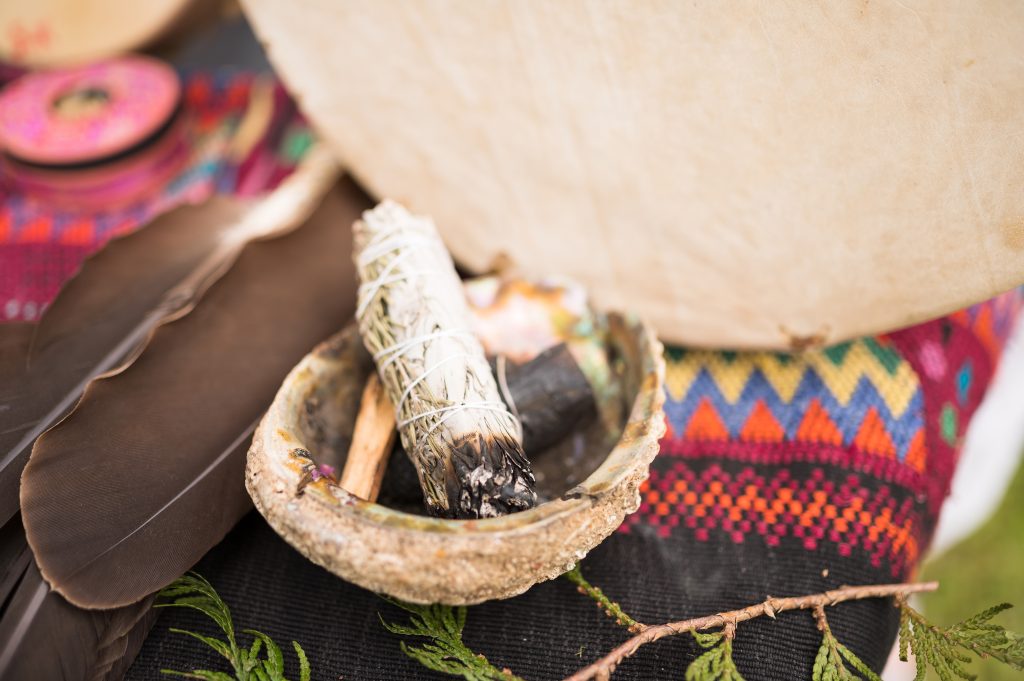Introduction
The evolution and imposition of Western scientific research approaches created an inherent tension with other ways of knowing. Decolonial research methodologies, in Canada and elsewhere, are a response to this tension and the colonial legacies – such as the Indian Act and Residential Schools – that have marginalized Indigenous communities and undermined their knowledge systems.

Decolonial methodologies are not new. For over thirty years, work by Indigenous scholars, such as Linda Tuhiwai-Smith (Ngāti Awa and Ngāti Porou, Māori), Leanne Betasamosake Simpson (Alderville First Nation, Michi Saagiig Nishnaabeg), Karlee D. Fellner (Otipemisiwak Métis Nation of Alberta), Shawn Wilson (Opaskwayak Cree Nation), and others, has challenged the status quo of research and provided ways of conducting one’s work that center on Indigenous Peoples’ voices and knowledge.
By decolonizing research and adopting decolonial methodologies, power shifts away from dominant Western paradigms, Indigenous and marginalized voices are centred, and more ethical, inclusive, and socially just approaches to knowledge production are created.
What are Decolonial Methodologies?
There is not one decolonial methodology or approach to decolonizing research. Instead, decolonial methodologies challenge the foundations of how research has been understood and practiced to date. Fundamentally, these methodologies prioritize Indigenous knowledge and ways of knowing over Eurocentric research practices during the research process. In other words, research shifts away from a researcher-centric approach to a collaborative, community-based approach, where Indigenous Peoples have control over and within the research process.
Key features of decolonial research include:
- Challenging Western Paradigms: Western approaches to research often assume objectivity, neutrality, and generalization. These approaches are often detrimental to Indigenous Peoples as they do not recognize or validate Indigenous ways of knowing or being.
- Reclaiming Indigenous Knowledge: Decolonial research aims to restore power to Indigenous Peoples and their traditional knowledge. This involves valuing Indigenous knowledge systems and practices, and prioritizing Indigenous people defining their own research agenda and priorities.
- Addressing Power Imbalances: Researchers must work to address the historical power dynamics between colonizers and the colonized. Decolonial research seeks to foster more equitable relationships that acknowledge the agency and autonomy of Indigenous communities.
- Promotes Ethical Practices and Indigenous Principles: Decolonial research prioritizes respect, trust, and reciprocity. Indigenous principles such as Free, Prior, Informed Consent, OCAP ®, and CARE, provide guidance on informed consent, respecting cultural practices, and ensuring research provides direct benefit to Indigenous Peoples.
- Re-envisioning Research: The focus of research is not on the production of knowledge, but on the well-being of Indigenous Peoples, ensuring that outcomes benefit those involved in the research process.
Key Decolonial Research Approaches
The decolonial research methodologies listed are not exhaustive but rather offer insight into methods that are frequently used.
Storytelling
Storytelling is a culturally rooted approach to knowledge sharing that honours the oral traditions, lived experiences, and relational ways of knowing within Indigenous communities. Stories are a living knowledge system that reflects a wholistic view of knowledge and are often situated within a specific time, place, and community. Using story as an approach requires deep, active, and embodied listening by researchers as the researcher becomes part of the process of meaning construction.
Storytelling is often implemented alongside data findings to help make meaning of them, but can also be employed to collect knowledge through informal interviews that rely on stories. This approach helps deconstruct and rebuild what research means, but it also works to build trust between the researcher and participants through mutual sharing and collaborative meaning-making.
Community-Based Participatory Research
Community-Based Participatory Research (CBPR) is a collaborative research approach driven by community priorities, where the community is involved throughout the entire research process, from writing the project proposal to analyzing the results and taking action based on the research outcomes.
CBPR builds on the strengths of the community by utilizing community resources, integrating knowledge and action, promoting co-learning, and encouraging an iterative and collaborative research process at all stages.

Land-Based Learning
Land-based learning is an approach that recognizes the land as a teacher, a knowledge holder, and an active participant in the research process. The land is an entity that shapes peoples’ lived experiences and holds the history, including trauma and joy, of a particular location.
Learning happens through interaction with land, including observation, seasonal knowledge, and traditional ecological practices. Practices and meanings vary by Nation, region, and culture and teachings are often guided by Elders and Knowledge Keepers, who determine what and how knowledge is shared. This process may include walking on traditional trails, participating in ceremonies, or planting and harvesting according to traditional calendars.
Implementation of Decolonial Approaches
While there is no standard model or practice for decolonizing research methodology, there are tangible ways to incorporate decolonial methodologies into research practice.
Question the Coloniality of Research
At the outset of the research process, it is essential to consider the coloniality of research by posing critical questions and taking the time to reflect. This may include asking questions like:
- What is the history of the discipline(s)/approaches being used?
- Why, as a researcher, are you looking to answer this question?
- Are there assumptions in the research questions and what other questions could be asked?
- Have alternative ways of learning, knowing, and doing been considered?
- How will work be done collaboratively and respectfully with stakeholders?
- How will contributions and co-production of knowledge be acknowledged throughout the research process?
Co-Developing Research
Research is relational. As Shawn Wilson discusses in Research is Ceremony, relationships do not just shape reality; they are reality and require accountability. Co-developing research involves thoughtful and intentional collaboration with those involved in the work to ensure it provides benefits to participating communities and Nations, and recenters other ways of knowing.
To co-develop research in a good way, researchers should ensure that their work is guided by the community, including the development of research questions, methods for data collection, forms of analysis, and the way knowledge is shared. As part of this process, it is essential for researchers to acknowledge and incorporate diverse ways of knowing, collaborate with communities to develop suitable protocols for knowledge integration, respect and honour Indigenous intellectual property rights, and foster long-term relationships. Across Turtle Island, this will likely mean integrating Indigenous methodologies that incorporate cultural protocols and values as an integral part of the methodological process.
Community Engagement
Community engagement with Indigenous Nations and communities is the first step in a collaborative research process. Community engagement is not outreach or consultation – it is a deep, sustained collaboration rooted in trust, accountability, and mutual respect. Community engagement respects protocols, ceremonies, and leadership structures specific to the community and is grounded in local values, languages, land, and traditions.

In community it is important to prioritize relationship building, follow community timelines, appropriately and fairly compensate Nation or community members for their time and knowledge, and include Nation or community members as co-authors, presenters, and decision makers. As part of this, reciprocity should occur in protocols, practices, and relationships, to ensure a continuous, intentional, and equitable exchange process.
Dissemination
Research should not be an extractive process. Instead, it should be about relationships, wisdom seeking, and creating shared benefits. One way to support these ideals is to ensure that the final results or products of research are shared back to the people in culturally appropriate ways and in a language that can be understood.
Concluding Thoughts
Decolonizing research is an ongoing process of unlearning, reimagining, and rebuilding how knowledge creation is approached. By centering Indigenous voices, relationships, and ways of knowing, researchers can contribute to more ethical, respectful, and reciprocal research practices. While there is no single path to decolonization, engaging with community, land, and story offers powerful alternatives to extractive models of research. Decolonial methodologies are about transforming not only how we research, but also who benefits from that research.










Share the article